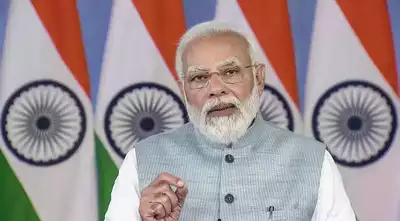Prime Minister Narendra Modi will attend the BIMSTEC FIFTH summit through video conferencing on March 30. Not wanting to share the stage with the rulers of Myanmar, India learned to lean on Sri Lanka, who hosted the Summit as the current BIMSTEC seat, to do on the virtual platform.
In addition to India and Sri Lanka, BIMSTEC (BAY of Bengal initiatives for multi-sectoral technical and economic cooperation) including Bangladesh, Myanmar, Thailand, Nepal and Bhutan.
Meanwhile, before should be held directly, the summit was delayed because of a pandemic. With the Covid situation increases, the summit is rescheduled for march-end. Senior Bimstec official will meet on March 28, followed by a meeting of foreign ministers on March 29.
“Challenges related to the Covid pandemic, and indifference in the international system that all BIMSTEC members face, provide greater urgency towards the objectives of taking the technical and economic cooperation of the Bimstec to the next level. This is expected to be the main subject of deliberation by leaders at the top,” said the ministry External (MEA) in a statement.
Leaders are also expected to discuss the establishment of basic institutional structures and group mechanisms, he said.
More than a year after the coup in Myanmar, India has made a change of nuance to distance itself from the regime – although it does not condemn it directly, but increases worries in the democratic process which is damaged by the military junta in Nay Pyi Taw. In the past few months, as Modi met with US President Joe Biden for a bilateral summit at the White House last September, the needle moved a little for Delhi.
With Washington leaning against Delhi, India found himself in a narrow place in Myanmar. Be aware of the political, military and economic traces of Beijing which grew in Myanmar, did not want to isolate the Nay Pyi Taw regime. Delhi believes it can, with partner countries, involving a junta.
Indian initial response is softer than usual. The hour after the coup in February last year, MEA said it had “recorded development in Myanmar with deep worries”.
A few weeks later, the Indian mission at Yangon Tweeted, on February 28 last year, that “the Indian Embassy was very sad to lose life in Yangon and other cities in Myanmar today”. This was after at least 18 people killed when security forces released protesters, according to the United Nations.
